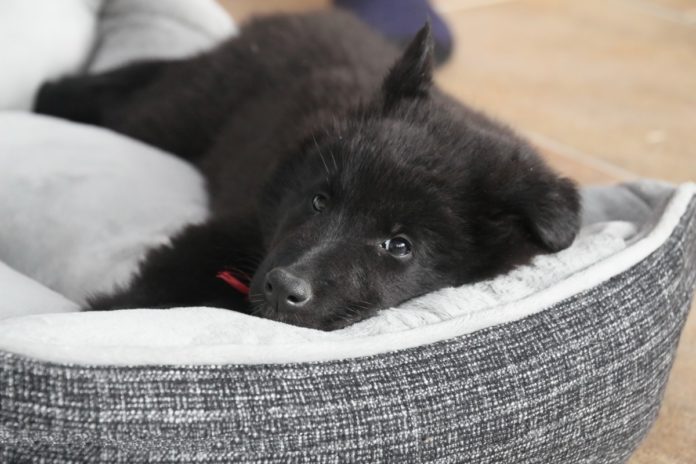Some people believe that because their pets have a fur coat they are able to withstand the cold better than humans.
This is not the case. Like us, animals are accustomed to the warmth of indoor shelter and cold weather can be as hard on them as it is on people.
A pet’s need for food, shelter and loving care increases during the cold winter months.
Providing warmth alone is not everything and providing warmth comes with its own share of responsibilities. Take special care when using heaters as they can be dropped and can cause serious burns and are serious fire hazards.
Pets can be provided with blankets and soft comfy sleeping areas. This is very important with hard floors like wood and tiles.
Dog and even cats can be accustomed to wearing jerseys in colder months. This is a great way to help fight the cold. The jerseys should be washed regularly and should fit right.
Pets should be brushed regularly, this may sound silly but this is essential in keeping the coat in tip top shape to provide optimal insulation. Do not bath pets unnecessarily and, if unavoidable, then dry them thoroughly.
Active or working animals will require a higher caloric intake as pets burn more calories in order to keep warm. These will need increased food quantities or better quality food.
Limit indoor pets outside time especially in strong winds or draughts. The wind chill factor can leave the animal colder than the ambient air temperature.
Pets with existing medical conditions are more demanding of calories when it is cold and
these pets must be provided with optimal nutrition. If there are any questions please contact your veterinarian to discuss options.
Outside areas may be changed to the sunny side of the garden instead of in the shade. Also check to make sure these are draught free areas.
The same precautions taken with or by elderly people apply here. Body fat content in geriatric pets is low. This means they will require more warmth. Food intake is already low in these animals so the best food in the right amounts should be given. Allocate a warm area specially for them as they are very special.
Winter brings our pets the onset of aches and pains usually associated with arthritis. This is also more common in cats that you may believe. The cold makes things much worse, joints become stiff and movement is limited by pain.
They are lethargic and sometimes their appetite is adversely affected and that obviously makes everything worse. These pets are reluctant to move, walk with a limp or with a very stiff gait. There are many treatments available for this condition including anti-inflammatory drugs, joint protective supplements and even foods which make the world of difference to our pets’ mobility. Again, contact your vet to assist in making a good decision to alleviate the symptoms of this terrible condition.
Other pets such as birds and reptiles are very popular pets today.
Birds have very primitive immune systems and a simple thing like an upper respiratory infection can lead to fatal consequences. Birds should be kept warm at all times. If heaters are used in their rooms, they should not be placed too close to the cage. Remember most heaters dry out the air which is also bad for their sensitive respiratory systems. Birds must be kept out of draughts. Cages can be covered on all three sides with just the front open. Birds that have free reign of the house must be kept away from open windows. On a warmer afternoon it is fine to take them out for some sun but be very vigilant for weather changes.
During the winter months vets often come across birds with respiratory infections. These need to be diagnosed early as birds are renowned for hiding symptoms of disease. Watch for signs of disease like being lethargic, talking less or making less noise and, as always, decreased appetite.
Feed a balanced diet and supplement with lots of fresh fruits and veggies for good vitamins. If you need advice on diet please contact your vet.
If you are worried about a possible problem, ask yourself if you have done everything to prevent them suffering from the cold, warm blankets, jerseys and good food. If you have and they are not well, take them in to your vet. If you are not sure call your vet and ask if they think it’s necessary to bring the pet in or if there’s something you may be able to do. Be more vigilant with the older animals.
• Information supplied by Dr Shabeer, Terrace Road Vet.






